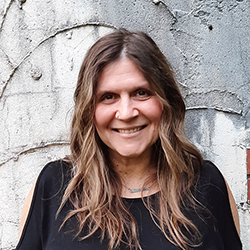
By Jessica Kirby, Editor
Scan the headlines, listen to the chatter—the world can be a difficult and unforgiving place. Between global conflict, the environment, the economy, pandemics, and a host of other issues way too big for one person to solve, there is a lot of heaviness out there. It can be easy to wilt.
But there’s another option. It is important to stay abreast of current events and stay prepared for whatever comes next, but it is equally important to practice self-care and stay strong in the face of chaos—for your own mental health and to inspire others. The next time you’re feeling overwhelmed and like the mess is too much, consider these strategies for standing tall and weathering the storm.
Acknowledge the crazy.
It is 100% reasonable to feel discouraged when things go wrong. We tend to compound feelings of despair with self-deprecating ideas about whether or not we should be having those feelings to begin with. Don’t do it. We feel fear, sadness, anger, frustration, and curious melancholy for a reason. The Buddhists say we suffer to know joy; psychologists say we suffer to protect ourselves from harm. Whatever the reason, never forget it is okay to feel anxious about the unknown, overwhelmed by the enormity of the issues, grief about loss, or paralyzed by the inability to act.
Embrace the feelings.
While uncomfortable emotions don’t feel good, they are necessary and part of the healing and changing process. Unfortunately, we live in a world of “there theres” and phrases like “stay positive!” when what we really need is to stay present so we can experience the full range of our emotions and know we can recover. This is an important lesson that mitigates the anxiety that comes with difficult feelings—if we can practice staying present. Always acknowledge the depth of your feelings and your right to have them. Then, focus on self-care.
Care for yourself so you can care for the world.
If you’re the sort of person who feels responsible for helping or changing the world, remember that the better you look after yourself, the more resources you will have to give others. And the opposite is true.
Schedule time each day for something that makes you feel complete. That might mean something meditative like a hot bath or actual meditation, or it could be something active like a workout or time in nature. Whatever it is, schedule time each day for this activity and treat it with the same importance as any other appointment or meeting.
Find gratitude.
There is neuroscience to support the effect gratitude has on our lives and health. Feelings of gratitude cause changes in brain structure as the medial prefrontal cortex—responsible for feelings of reward, morality, social connection, and general positivity—lights up, creating new neural pathways and strengthening our ability to revisit and draw from positive experiences. These changes in the brain also boost the immune system, reduce stress, strengthen relationships, and reduce chronic pain. Even in the darkest hour, there is always a shred of light. Find that and focus there.
Find balance.
Even the most dedicated person needs a break from the world’s noise. Mitigate your stress about the world by limiting the time spent focusing on the problems. For example, limit your time on social media and news outlets, carving out time for exploring and learning but remaining dedicated to those limits. Remember that only the shiniest moments make it to social media and the most difficult make the news. Neither is a true reflection of the world’s nature in its entirety.
Focus on what you can control.
People with attention or executive functioning difficulties find breaking large tasks into smaller lists extremely effective in feeling organized and accomplished. This simple strategy can help anyone feeling overwhelmed by the largeness of a situation. Problems that seem too big or too complex probably are, but that doesn’t mean all is lost. Break big issues into smaller series of tasks and cross a few actions off at a time. The act of crossing something off a list causes a dopamine reaction in the brain, rewarding one’s efforts and creating an innate sense of motivation.
Success in numbers.
You can bet that if you are worried about something, there are others out there feeling the same thing. Surround yourself with people who share your values and focus. Connect with others who understand your temperament and complement your personality, and participate in activities together—eat, exercise, or entertain together and watch your mood and sense of optimism lift. Human beings were meant to connect, collectively finding solace in one another’s ability to share space and ideas. Seek that and enjoy. ■



